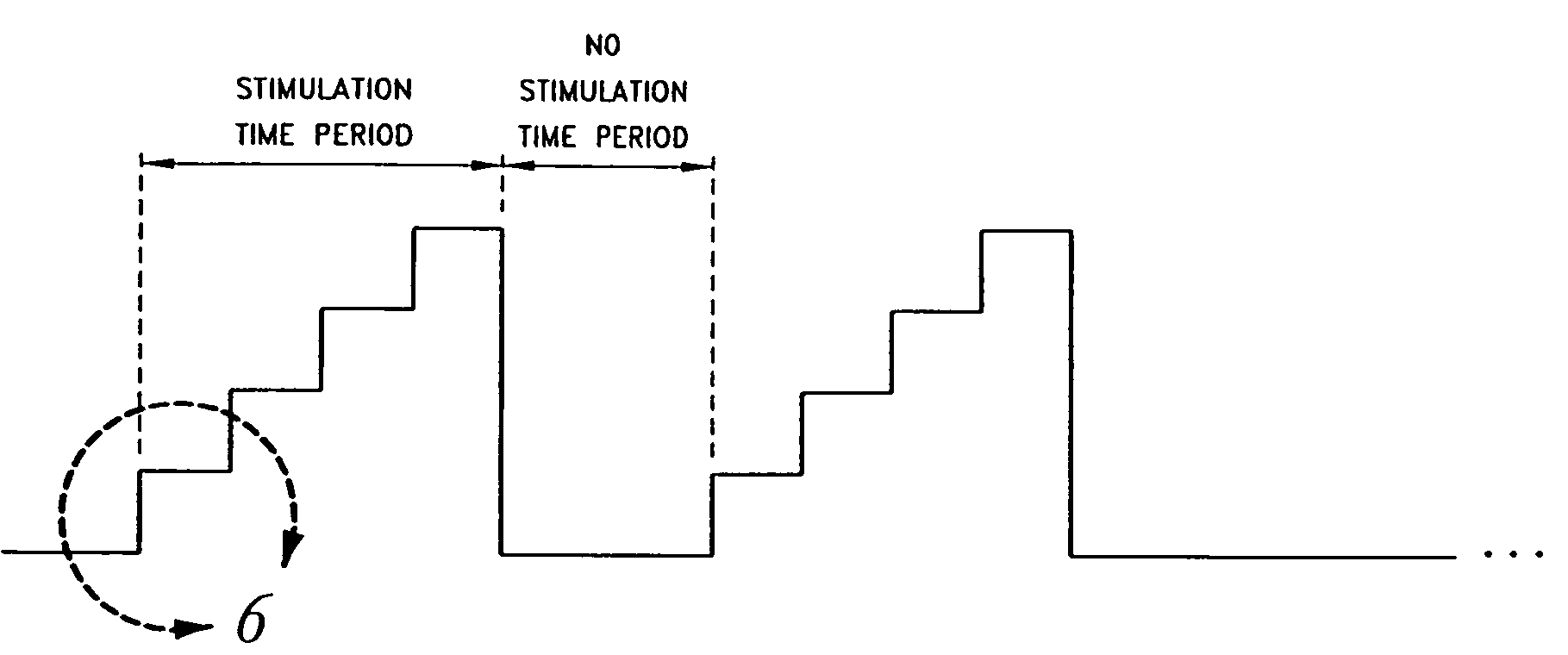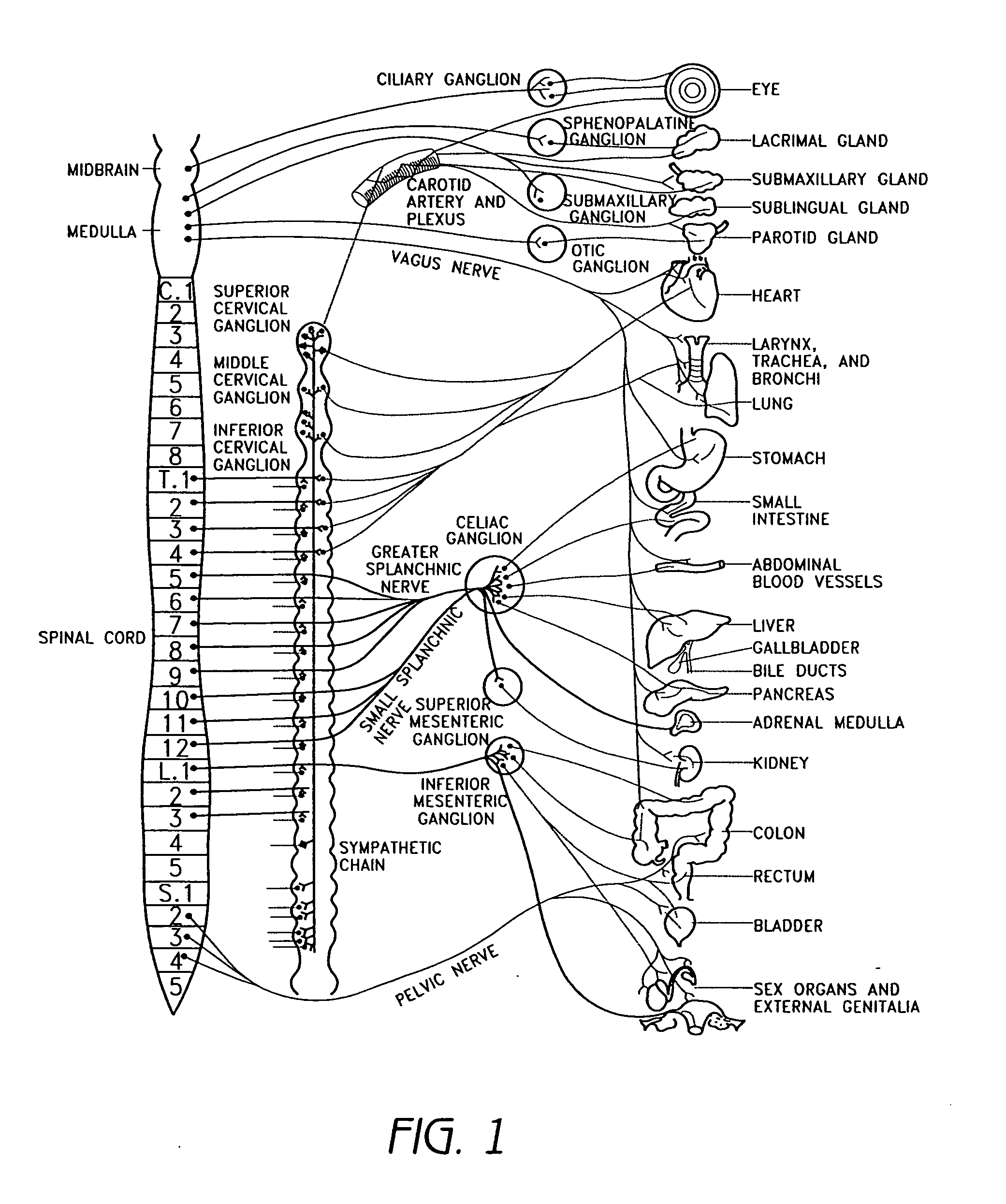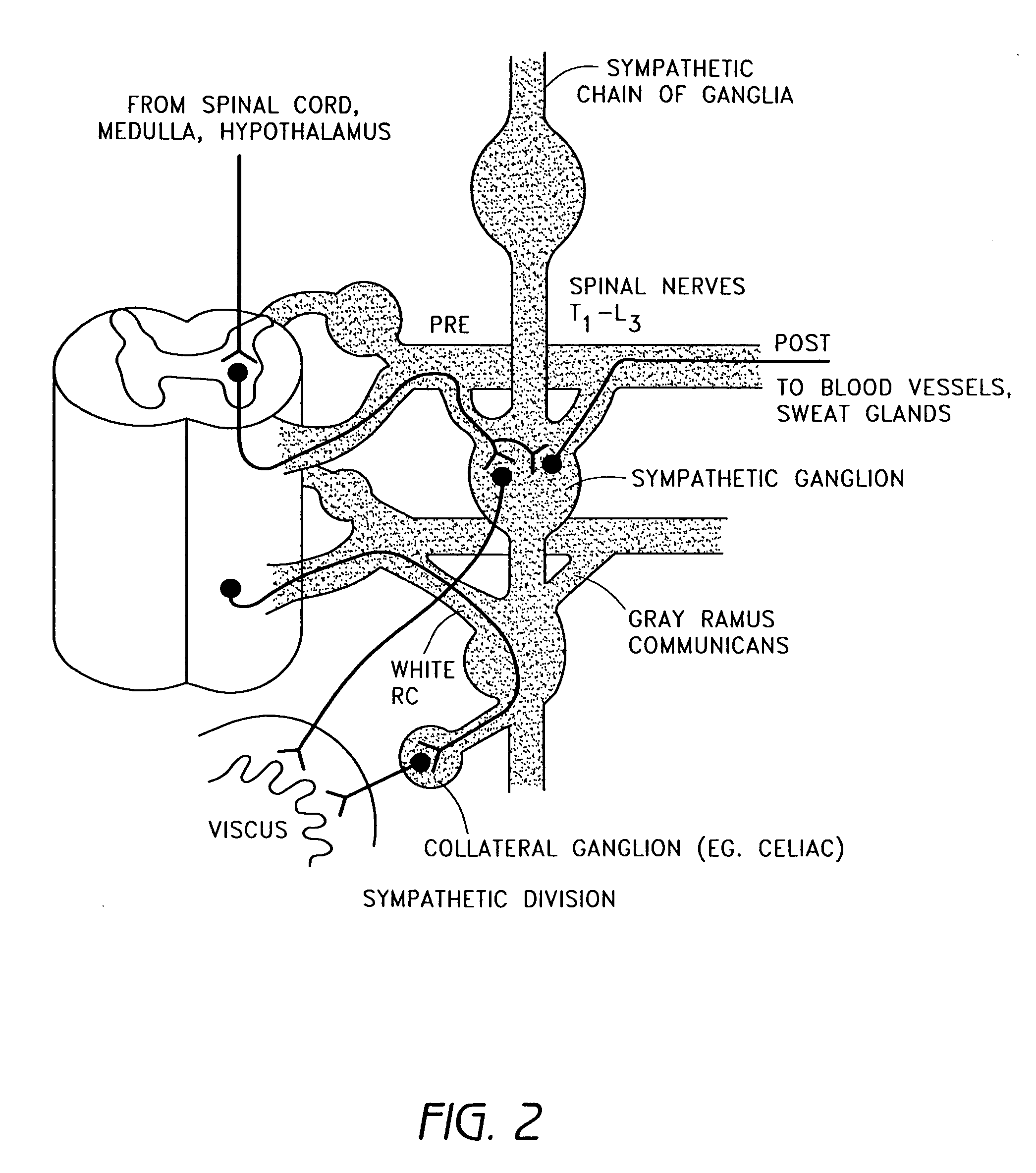Neural stimulation for treatment of metabolic syndrome and type 2 diabetes
a metabolic syndrome and neurostimulation technology, applied in electrotherapy, therapy, etc., can solve the problems of increased risk of life-threatening diseases, increased risk of high insulin levels, and inability of pancreas to keep up the necessary levels of insulin, so as to increase the lean muscle mass of patients
- Summary
- Abstract
- Description
- Claims
- Application Information
AI Technical Summary
Benefits of technology
Problems solved by technology
Method used
Image
Examples
Embodiment Construction
[0068] The attendant or contributing conditions of both metabolic syndrome and type 2 diabetes can include, but are not limited to, obesity, dyslipidemia, hypertension, hyperinsulinemia, elevated plasma glucose levels, hyperglycemia, insulin resistance, a decreased lean muscle mass fraction of total body mass, an increased visceral or abdominal fat fraction of total body mass, or high blood pressure. Dyslipidemia can include, but is not limited to, elevated levels of total cholesterol, elevated levels of triglycerides, elevated levels of LDL, or decreased levels of HDL. One of ordinary skill in the art will understand that ameliorating or treating an attendant or contribution condition of type 2 diabetes can be equivalent to ameliorating or treating an attendant condition of metabolic syndrome.
[0069] As discussed above, the indicators or attendant or contributing conditions of metabolic syndrome include obesity, and particularly obesity around the waist. A waistline of 40 inches or...
PUM
 Login to View More
Login to View More Abstract
Description
Claims
Application Information
 Login to View More
Login to View More - R&D
- Intellectual Property
- Life Sciences
- Materials
- Tech Scout
- Unparalleled Data Quality
- Higher Quality Content
- 60% Fewer Hallucinations
Browse by: Latest US Patents, China's latest patents, Technical Efficacy Thesaurus, Application Domain, Technology Topic, Popular Technical Reports.
© 2025 PatSnap. All rights reserved.Legal|Privacy policy|Modern Slavery Act Transparency Statement|Sitemap|About US| Contact US: help@patsnap.com



